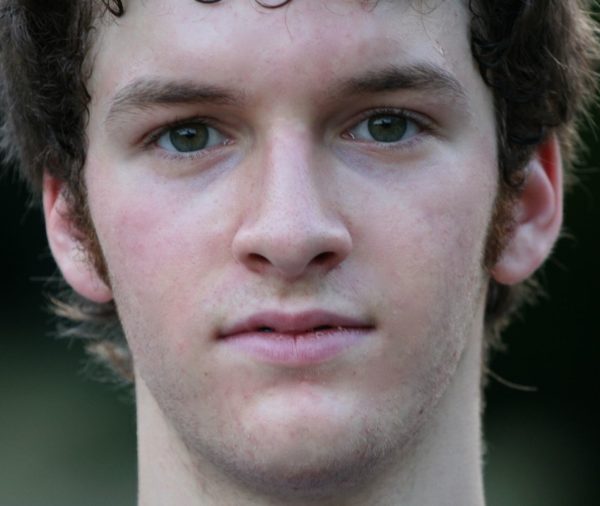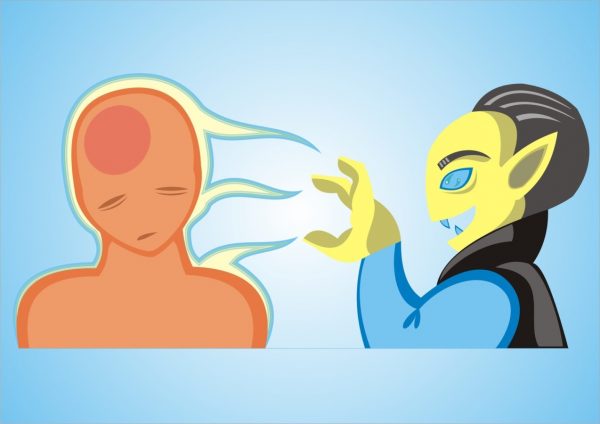This next topic is dear to my heart, having raised 5 kids all of whom are headstrong and independent from birth. They didn’t insist on what brand of diapers to buy or whether to put a touch of scotch in their bottle but… Actually, I breast fed so I’d have to be the one nipping from the flask. There were days that I wouldn’t have minded that, though. You parents get me, right? But I truly think most of the children who test us are the ones who make something out of themselves in the end. Yes, the children who are passive and constantly compliant make your life easier, but our job is to raise them to know how to find their own happiness. (Don’t get me wrong. Some of the passive, compliant ones can reach this goal so no hate mail, please. This is a generalization.) As you read this, please note that Erik’s words apply to more than the parent-child relationship.)
Jamie starts by saying how she started smelling something burning. She asked Erik what it was and he replied, “My smoking ass.” Sigh.
Me: Bad boy! Okay, so tell us about loss of control, in general.
Jamie: He’s taking that right to bowel movements.
Me: Oh!
I go on to say I want to cover loss of control of oneself as well as loss of control over external things, people or otherwise.
Erik: Loss of control of your physical body, like you want to punch someone or run away, those are emotionally driven.
Me: Oh yeah. Of course.
Erik: This emotional drive is fed by the hormonal response so we got that covered. Lack of emotional control. Why does that happen? (In a slow voice) Because you don’t know how you fucking feel, and you don’t feel right in sharing it. It’s either because you’re going to feel too vulnerable or that you’re going to be judged. It’s all your own shit. Got it?
I chuckle.
Erik: If you want to learn more about that, read a book. Learn how to communicate. Join a class Get a therapist. Get someone who’ll help you understand why you’re carrying this concept or idea that you can’t open up to someone because they’re going to judge you and you automatically take the defensive stance.
Me: Well, first you can look inside and ask yourself, “Am I being emotionally honest? If not, why?”
Erik: That’s right, and I think that would work for most people, but I still think there are some, even if they ask, they don’t know how they feel. They can’t get that answer for themselves, so they need someone who’s going to hold their hand and go like, “This is what reaction I’m seeing in you,” and they can help them identify what that emotion is to them.
Me: Okay.
Erik: Yeah, cuz some kids aren’t even taught that they’re going through an emotion. They’re just told, “That’s not right. You get in line, sit down and shut up.” That sort of shit isn’t going to go well with our new kids coming in. The kids coming in now are sensitive. They’re emotionally sensitive and they’re going to hold you liable, man. So, when you lose control of your kids—that’s an example you just gave a while ago—does that hit home, Mom?
Jamie giggles.
Me: Uh, yeah!
Raising 5 rambunctious kids over a spread of ten year? Not a piece of cake.
Erik (waving his hands in the air and then messing with his hair): I’m uncontrollable!
Jamie and I both laugh.
Erik: I spent a lot of time in the time out chair.
Me (emphatically): Oh yeah!
Jamie: Get on track, Erik.
Erik: As a parent, you’re kind of taught—and my mom can speak volumes on this—to be an authority figure.
He’s referring to my three books on parenting.
Erik: You’re taught that you need to give direction, but that’s not always the best way. Kids aren’t looking for authority and rules from you. They’re looking at how to discover them for themselves. When you’re feeling out of control, I would put a finger on the pulse of, “What am I not trusting, and why can I not trust?” That means you think your child isn’t going to make the best choice, so you’re making it for them. You’re probably setting up an environment for your child to behave in exactly the way that you think is best for them, which might not be. Even if it is—and I’m not trying to say it’s right or wrong here because we’re all here learning different shit—but if you’re setting up something for your child to go through, right there’s the failing technique. It’s okay to express what you want to set up, but say to your child—I don’t care what age—“You gotta do it the way you think is best for you.” And as a parent, you have to accept that loss of control.
Me: So providing them with a safe environment for them to test their own limits and deal with the consequences one way or the other. Is that what you’re saying?
Erik: Yes.
Me: Cuz I wrote a book about it.
I describe the premise of the book, and list their titles at Erik’s insistence.
Erik: Like I said, my mom can speak volumes on this.
Me: Learn from my mistakes, Baby! And you helped me out there, Erik! I should split the royalties with you.
Erik: Sounds good. Just hold onto it, and maybe I can get to it when I get into another life.
Me: So what do you do about teens that’re in trouble. They’re into drugs; you don’t know whether they’re going to end up in prison or the morgue. It’s really, really scary and maybe part of that is because you’ve raised them to become externally directed so that they look to others to get approval and to help build their self-esteem. So what do you do? You can’t leave them to fend for themselves, can you?
Jamie: I have no idea what kind of turn around, stand up thing he’s doing, but his hands are back like, “Hands off.”
Erik: Hands off is what you do. Normally, when you’re afraid, you try to control, step in like, “Stop. Sit down. You’re grounded; you’re this; you’re that.” That’s not addressing how this teen or this person is reacting to their situation. They need to be spoken to on an emotional level, and most of the time, that’s the body (of the four: physical, emotional, mental and spiritual) that has the most damage. You have to find ways for them to learn. Remember what we talked about in the workshop? When you’re trying to figure out how to work with subtle energy, you find out how you learn the easiest. How do you gather your information? Are you a visual person? Or you auditory, kinetic, a combination? You need to know which that child or teen is so that you can deliver the information you know so that they can absorb it the best way and learn in the way that they learn. It’s difficult to say, “You’re the parent. You’re responsible for that child’s life,” because, in essence, you are when they’re little. They can’t run as fast as you. They’re not as aware as you are. They’re not looking for that car. You’re responsible for speaking to them on an emotional level and help them understand how they can best learn. But when they’re old enough, you know, adults, to understand and know these things, then they become responsible for themselves, and you are no longer responsible for them. A lot of parents can’t let that go.
Me: Yeah, because if they die, you’re going to live in a world of guilt. How do you keep that from happening? Or they might end of in prison.
Erik: But Mom, that’s not the parent’s responsibility. My death wasn’t your responsibility. There was nothing you could have done. You could have pried into my life 15 layers into the fucking onion, and I still would not have allowed you to see what I was really thinking and going through. That was in my control. That was my private space. That was my choice. That was my body. And these other teens, once they reach adulthood, are the same way. As soon as they learn the task, it’s their responsibility to learn more about it, to do it to their best degree or to destroy it. It’s no longer the parent’s responsibility, and I think this relationship—
Jamie: What did you say? Say it again.
Erik: I think this—
Jamie (laughing): Stop teasing me.
Erik: I think the relationship between the parent and the child and where the responsibility lies is completely fucked up. We’re getting more into where parents are more willing to step back and say, “I need to let my child fail.” But we went through a long ass period where we were all up in our children’s shit, telling them what to do and how to do it and how to dress and how to look. Kids were performers.
Me: Mm hmm.
Erik: Now, we’re getting some really authentic people, and, in the process, sometimes the child might find out that they can’t be authentic with themselves. Now is it the parent’s responsibility to teach that to them? Absolutely! Start doing that instead of saying, “Quit the drugs. Stay at home.”
Me: Yeah, like that’s going to help.
Erik: Yeah. Exactly. It doesn’t work. You’re just putting more rules on something that was already broken. It sucks. It starts a fire.
Me: Yeah, you have to have some faith in your child somehow, even though it’s really hard when they’re struggling. And when you rescue them all the time, that’s what causes them to not be able to handle frustration and that’s highly predictive of drug abuse.
Erik sucks his thumb.
Jamie and I chuckle.
Me: I don’t remember you sucking your thumb very much.
Erik: No, I didn’t, but you were saying that if you rescued them a lot—
Me: No, I know. I’m just digressing.
Erik: You know, they have to pacify themselves somehow, and, if you rescue them, they’re not going to learn how to do that.
Me: Exactly. So what do you do? You can’t just turn your back on them and say, “Okay. See ya later. Good luck with that!” What can you provide for them?
Erik: Hell, no, you don’t turn your back. Just because you can’t be responsible for their actions and be an authority figure to them doesn’t mean you turn your back.
(Pause)
Jamie: He’s going off.
Erik: That’s so American. That’s where miscommunication happens. It’s a huge misunderstanding to think that you can’t do what you want in a relationship like be the authority figure or the teacher, then you have to run away. No. You embrace. You sit. You become the listener. You open yourself more than you did before, and that’s painful for a person because then that parent has to recognize that what they were doing in the beginning wasn’t working, and they have to force themselves to learn a different way. That’s to open up even more and take it. Take it! Take it that their child is falling apart and there’s nothing they can do about it. Take it that their child is hurting, and they have no answers. But you can’t do that if the minor is in serious danger, of course.
Me: Of course there’s that fear that, if they stop that authoritative role, their kid will spin totally out of control.
Jamie (laughing): I think Erik is trying to make it rain. He’s up and you can see his legs justa movin’, pacing in a circle.
I chuckle at the thought of him doing a rain dance.
Erik: If you let up and take away the structure, that doesn’t cause the child to fall apart. You didn’t get to create a mold around them as soon as they were born so that when you take the mold away, the child just melts away. You had the mold inside the belly, and that’s as much as you’re going to get.
Me: Well there’s still that fear of, “Oh my god. They’re going to run over me ram shod and make really bad choices because I’m not reining them in.
Erik: It’s not about reining them in, though. If you release your authority and your rules and adapt yourself into being more open and listening and being present—walking away is the worst thing you can do. Turning your back is the worst thing you can do. Being present and maybe not having a specific direction is the best thing that you can do for someone. And this goes beyond the parent-child relationship. This could be a best friend, a spouse—
Me: Coworker, boss. That was going to be my next question. Can you take this beyond the parent-child relationship? Give me a specific example. Let’s say your daughter is a raver, and you’ve tried so hard, drug testing her, taking away her car, etc. and it doesn’t work. She gets in deeper and deeper and is with a really nasty group of friends. What do you do?
I don’t have any idea why I kept asking about the parent-child relationship.
Erik: You set a structure and tried to tell her, “You’re grounded, and the car’s taken away.” But when you start doing that, you’re coming to your daughter saying, “I know better. I’m taking this away from you.” That just makes your daughter go, “Well screw you. I’m going to go around you. I’m going to figure out a way where I can still get out, and I don’t even need my car. So it gives them the opportunity to problem solve straight into the direction that you, as a parent, were trying to avoid, and she didn’t see that she needs the help. Those are her friends; that’s her environment. Who are you? You aren’t even present during those moments. So, already, you’ve created more distance. Let’s say now if, sticking to the example that you want to help your daughter who’s a raver, and you don’t want her to be because you’re seeing that she’s becoming obsessive, addictive, her grades are dropping. You can see socially and intellectually that she’s surrendering some of the integrity and morals she had before, so you think you need to insert yourself and say, “Listen. As an observer, I’m seeing this go down.” So you come in, not with authority, but with a little bit of a teacher mode. Explain what you’re seeing. Explain what her responsibilities are to the household, to the family, and how she needs to maintain those and create an open conversation like, “You know, you need to talk to me about some of these things.” It’s not about invading her privacy like reading her journal. You have to trust that she needs that private space. I’m talking about in conversation. How does she feel? What’s going on? Most of the time we think the school is going to provide all of the teaching that the child needs. That’s not true. They need it at home. They need to see that parental figures, whoever they are, aunts, uncles, grandparents, single parent with a boyfriend or girlfriend or whatever, that they’re communicating and problem solving. Most of the time, they’ll do that in a private arena so that the children don’t see. That’s bullshit because where else are they going to get this great example of arguing, getting to a point, and making up to show that a relationship isn’t always about kissing and hand holding and smoothing it over. They have to see that you have to talk about things that aren’t always palatable. So if you can learn to communicate and listen better and have that kind of structure rather than the rules structure, you’re going to get closer to your daughter than you ever were before, and you’re going to see where she needs the help. Then you need to ask, “Can I help you there?” If she says, “yes,” then the world is your oyster. You have now earned the respect of your child. You can trust her, and you can help her be the person she wants to be. She’s old enough to no longer be your responsibility. Her personality is not your responsibility.
Me: What about the case of a boss? Say you have an out of control boss.
Finally!
Erik: That’s more about boundaries. If you want to take that shit, go ahead and be abused. If you don’t want it, and you’ve set boundaries, and they don’t work, then you need to get the hell out of your job.
Me: So, it’s not really your job to help the guy rein himself in. So some of it is about setting boundaries and some of it is about creating a loving, trusting environment.
Erik: Yes.
You don’t have to explain yourself to anyone”
–Erik Medhus




